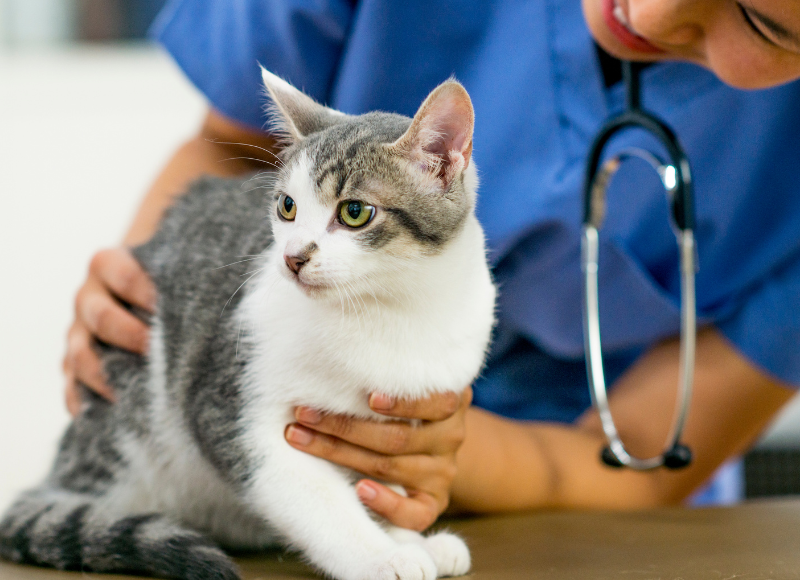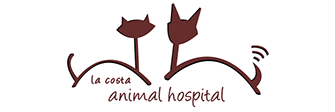Bloodwork
It’s our job to ensure that your pet can properly process and then eliminate the anesthetic he or she is given. Before we perform any procedure requiring anesthesia, we run tests to confirm that your pet’s organs are functioning properly and to reveal any hidden health conditions that could put your pet at risk.
Hematology
Hematocrit (Hct) Provides information on the amount of red blood cells (RBCs) present in the blood. A low hematocrit indicates anemia (low red blood cells or hemoglobin). A packed cell volume (PCV) is a very similar test that is run manually.
Complete Blood Count (CBC) A more complete panel of tests, a CBC provides detailed information on red blood cell counts, white blood cell counts and platelets. The total white blood cell counts and individual cell counts can indicate leukemia, stress, inflammation or an inability to fight infection. Low platelet numbers can indicate a bleeding problem. We might advise that surgery be delayed if anemia, inflammation or especially a low platelet count is present because these conditions could cause serious surgical complications.
Chemistries
- Albumin (ALB) A protein that is produced by the liver. Reduced levels of this protein can point to chronic liver, kidney or intestinal disease.
- Alanine Aminotransferase (ALT) An enzyme that becomes elevated with liver disease or injury.
- Alkaline Phosphatase (ALKP) An enzyme present in multiple tissues, including liver and bone. Elevated levels can indicate liver disease, Cushing’s syndrome or steroid therapy.
- Amylase (AMYL) An enzyme produced by the pancreas. The pancreas secretes amylase to aid in digestion. Elevated blood levels can indicate pancreatic disease.
- Blood Urea Nitrogen (BUN) BUN is produced by the liver and excreted by the kidneys. Abnormally high levels can indicate kidney disease or dehydration, and low levels can be associated with liver disease.
- Calcium (Ca2+) Increased levels can be seen with diseases of the parathyroid gland and kidneys, or as an indicator of certain types of tumors.
- Cholesterol (CHOL) Elevated levels of cholesterol are seen in a variety of disorders, including hypothyroidism, and liver or kidney disease.
- Creatinine (CREA) Creatinine is a by-product of muscle metabolism and is excreted by the kidneys. Elevated levels can indicate kidney disease, urinary tract obstruction or dehydration.
- Blood Glucose (GLU) High levels can indicate diabetes. In cats, high levels can also indicate stress, which can merely be a result of the trip to the veterinary hospital. Low levels can indicate liver disease, infection or certain tumors.
- Phosphorus (PHOS) Elevated phosphorus can be an indicator of kidney disease.
- Total Bilirubin (TBIL) Bilirubin is a breakdown product of hemoglobin, as well as a component of bile. Blood bilirubin levels are useful in indicating liver disease and possibly help characterize anemia.
- Total Protein (TP) The level of TP can indicate a variety of conditions, including dehydration and diseases of the liver, kidney or intestine.
Electrolytes
Sodium, Potassium, Chloride (Na+, K+, Cl) The balance of these electrolytes is vital to your pet’s health. Abnormal levels can be life-threatening. Electrolyte tests are important in evaluating vomiting, diarrhea, dehydration and cardiac (heart) symptoms.
Urinalysis
The urine contains by-products from many organs, such as the kidneys, liver and pancreas. Abnormal levels of these by-products can indicate diabetes, liver or urinary tract disease. In addition to testing for these products, a urinalysis can detect urinary tract infections and urinary crystals and allows evaluation of urine concentration, which is an important indicator of conditions such as kidney disease, diabetes and Cushing’s disease.
A urinalysis is usually collected using a sterile method termed a “cystocentesis”. This involves directly inserting a needle into the urinary bladder; the advantage of this procedure is that the sample collected does not contact the lower urinary tract and genitalia, so thus is sterile and representative of the upper urinary tract (kidneys, ureters and bladder). This procedure is safe and painless, but it does require a full bladder. For this reason, we usually recommend that you try to prevent your pet from urinating prior to coming to La Costa Animal Hospital for a urinalysis. If a cystocentesis sample is not possible or if the veterinarians at La Costa Animal Hospital would like to investigate the lower urinary tract (urethra and genitalia), a “free catch” sample is collected into a clean container while your pet urinates.
T4 (Thyroxine)
This is a measurement of the level of thyroid hormone circulating in the blood, and is helpful in identifying thyroid disease. Thyroid disease occurs in both dogs and cats, and can have a serious impact on health if left untreated. Testing is especially important for cats over the age of seven.

